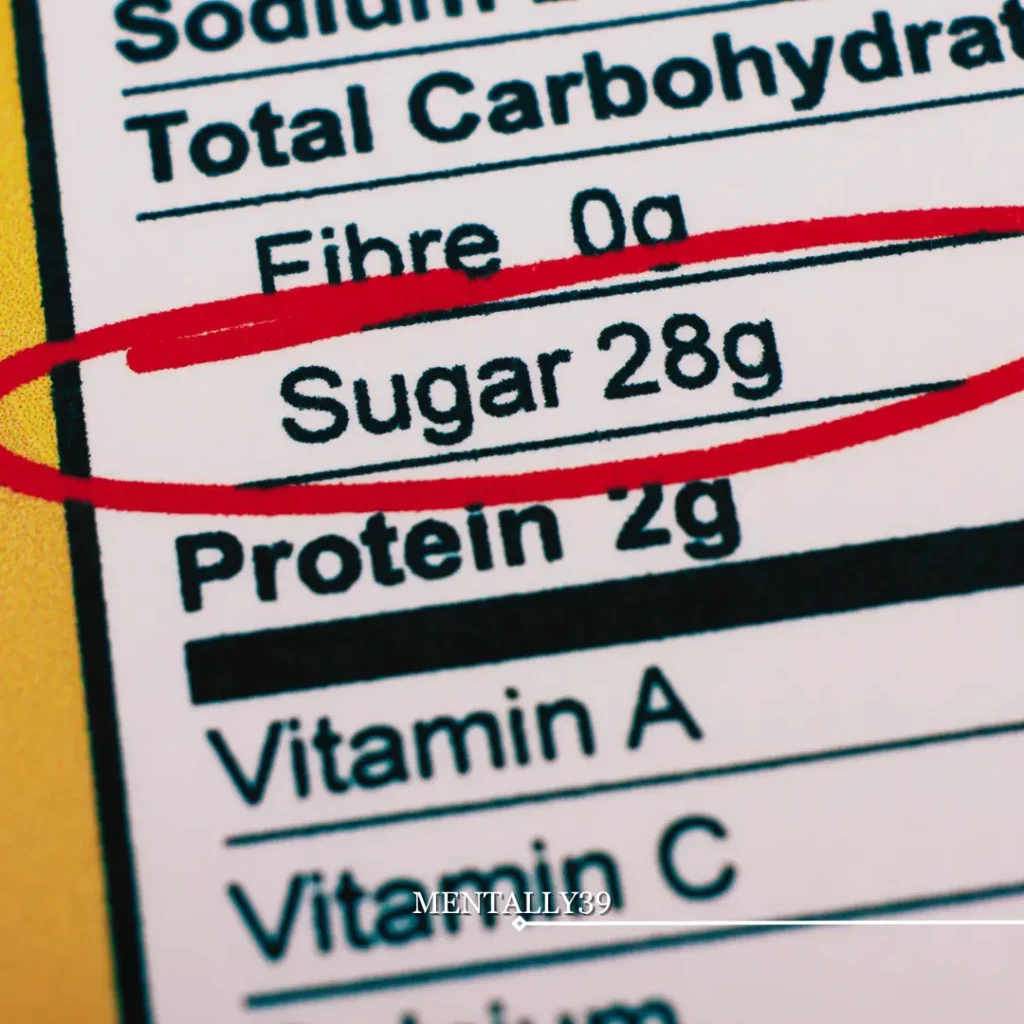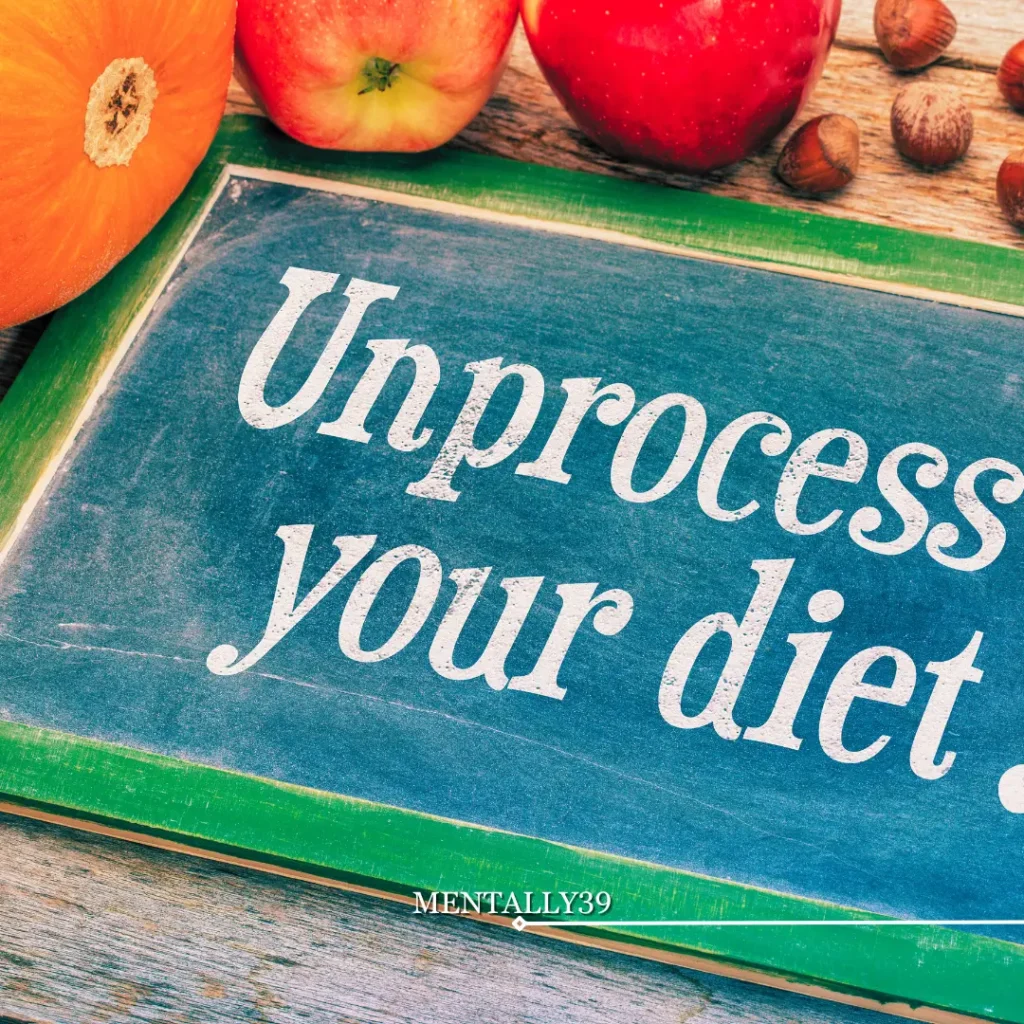In an era where the siren call of convenience often overrides the pursuit of well-being, it is imperative to ask: are we feeding our bodies or merely filling them? The buzzy term “processed food” has garnered a notorious reputation, but exactly how does it stack up against unprocessed foods in the quest for a healthy diet? This guide will take a closer look at the advantages of a plant-based diet. We’ll explore the idea of unprocessed or less processed foods and explain how eating minimally processed foods can help you become healthier and feel better.
Table of Contents
Many people these days are interested in eating healthy, and there is a popular idea called ‘clean eating.’ But it can be hard to know what really counts as healthy food and what pretends to be. This guide will help you improve your diet by avoiding unhealthy processed foods and choosing nutritious foods instead.
Key Takeaways
- Understanding the slight difference between processed, unprocessed, and ultra-processed food is essential.
- Minimally processed or unprocessed foods enhance diet quality and contribute to improved health and wellness.
- To maintain a healthy plant-based diet, consuming fewer processed foods is important.
- Adopting a habit of eating less processed substantiates the foundations of healthy eating.
- Making a habit of choosing unprocessed food can be a smart way to defend against common health problems.
- The words ‘processed’ and ‘unprocessed’ describe how food travels from where it comes from to your plate.
Understanding Processed Foods and Their Impact on Health
“Processed food” can mean different things, like food that’s been changed a lot or just a little. This can affect how healthy the food is. Since there’s an increase in eating-related diseases, it’s important to understand how different processed ingredients can affect our diet.
What qualifies as processed food?
When we alter food from its natural state to enhance its convenience, shelf-life, or taste, we refer to it as processed food. This encompasses various foods, from pre-cut vegetables to bottled sauces. Occasionally, even foods that appear to be healthy may contain processed ingredients, which also classifies them as processed foods.
Health risks associated with highly processed foods
Eating too much highly processed food can cause many health problems. These types of food often have added sugar, salt, and unhealthy fats that can make you gain weight and increase your risk of heart disease and diabetes. It’s important to understand the effects of eating processed foods in the short and long term so we can make better choices and stay healthy.
Decoding Labels: Additives and preservatives
Identifying and understanding food labels is critical when it comes to determining how much a food is processed. Added sugars, artificial flavors, and preservatives commonly found in ready-to-eat products can be misleading if not properly examined. A fundamental part of mindful eating involves recognizing that labels such as “sugar-free” often come with a caveat—namely, the presence of artificial sweeteners or other processed substitutes.
| Category | Description | Common Additives |
|---|---|---|
| Unprocessed | Foods in their natural or minimally altered state | None |
| Minimally Processed | Foods altered for preservation but remain nutrient-rich | Salt, Vinegar (for preservation) |
| Moderately Processed | Foods modified for flavor, convenience, or longevity | Added sugars, Oil, Salt |
| Heavily Processed | Foods with substantial additions of non-natural ingredients | Artificial flavors, Colors, Preservatives |
Benefits of Incorporating Non-Processed Foods into Your Diet
Eating non-processed food is good for you and can make you healthier. Unprocessed food has more nutrients and is better for your body than many processed food. Natural food is a good foundation for a healthy diet and has many benefits, like making you feel better and keeping harmful things out of your body.
| Benefit | Description | Impact |
|---|---|---|
| Whole Nutrients Intake | Unprocessed foods retain more of their natural vitamins, minerals, and antioxidants. | Supports the immune system, disease prevention, and overall health. |
| Fiber Content | Natural foods like fruits, vegetables, and complete grains are rich in dietary fiber. | Improves digestion, aids in feeling full, and regulates blood sugar levels. |
| Decreased Additives | Minimal processing means fewer artificial ingredients and preservatives. | Reduces exposure to potentially harmful chemicals linked to chronic diseases. |
| Guard Against Overeating | Foods closer to their natural state tend to be more satiating. | This may lead to a reduction in overall calorie intake, aiding in weight management. |
| Environmental Impact | Slightly processed foods often translate to less packaging and energy used. | Contributes to a smaller carbon footprint and more sustainable living. |
When we choose to eat foods that are not heavily processed, we are committing to our own health and the health of our planet. These foods provide essential nutrients that help us feel energetic and vibrant. Eating raw foods like apples and vegetables is an important part of a nutritious diet.

Identifying Unprocessed Foods
Eating healthy means choosing real foods that come straight from the farm, not created in a plant, and then shipped to the supermarket. These natural foods are packed with nutrients that are good for our health and don’t need much human tinkering to be good for us.
Whole Foods: A Cornerstone of Unprocessed Diet
At the heart of an unprocessed diet are whole foods. These include fresh produce, whole grains, legumes, nuts, and seeds. When you eat whole foods, you get all the good stuff that comes from nature. This includes vitamins, fiber, and special nutrients processed foods don’t always have. By choosing whole foods, you choose to eat real food that helps your body stay healthy.
Examples of Unprocessed or Minimally Processed Foods
Foods that are minimally processed are closer to their natural form. For example, minimally processed fares include quinoa, which is cleaned and cooked, or apples, which might be cut but are otherwise unaltered. Another example includes steel-cut oats, which are a hearty and wholesome alternative to more refined breakfast cereals. A helpful list of food choices focuses on options that are easy to understand, with ingredients that you can recognize and pronounce.

Nutritious Alternatives to Common Processed Items
If you want to eat healthier, it’s better to choose foods that are as natural as possible. For example, you can make a simple vinaigrette with olive oil and vinegar instead of bottled dressings. You can also replace sugary granola bars with a handful of almonds and dried fruit. Snack on foods like air-popped popcorn or fresh carrot sticks instead of things that have added sugars, salts, or artificial flavors. These choices are satisfying and better for you.
Transitioning to an Unprocessed Food Diet: Practical Tips and Tricks
Avoiding ultra-processed foods is a good idea when you want to eat healthier. These foods have been changed from their original state and can be bad for your health. Eating foods that are slightly processed can be really good for you. It can make you feel better and help your body work better. Ultra-processed foods often contain ingredients most of us can not pronounce; avoid those.
You can start by filling half your plate with vegetables at each meal. This can be a big change if you’re used to eating many processed foods, but it can be good for your health and help you like natural flavors more.
Another impactful strategy is to prepare snacks that are inherently nutritious and free from the heavy processing commonly found on supermarket shelves. Here’s a quick look at some options:
| Processed Snack | Unprocessed Alternative | Benefit |
|---|---|---|
| Chips | Sliced cucumbers or bell peppers | Lower in calories, rich in hydration and vitamins |
| Store-bought Granola Bars | Homemade trail mix with nuts and seeds | No added sugars, healthy fats |
| Instant Oatmeal Packets | Steel-cut oats with fresh berries | Higher in fiber and antioxidants |
When changing your eating habits from processed foods to healthier options, you may face some difficulties. Being short on time can make choosing fast and convenient options tempting. To avoid this, set aside time each week to prepare an ingredients list to quickly create a healthy meal instead of reaching for prepackaged foods.
Choosing whole-grain foods like brown rice instead of refined grains can also significantly reduce your intake of processed foods. Remember, the goal is to find a sustainable way of eating that fits your lifestyle, supports your physical health, and allows you to enjoy your food. You get all the benefits of their natural nutrients by choosing real foods. Don’t worry; you won’t have to give up your favorite foods. Opt for fresh ingredients and enjoy the delicious taste of real food.
Building a Whole, Plant-Based Diet: Meal Planning and Recipes
Eating a diet that is based on whole plants is a good idea. To start, it’s important to plan meals that include different kinds of non-processed foods like whole grains, fruits, and veggies. This way of eating is good for the heart and helps prevent chronic diseases that can come from eating too much processed and unprocessed food.
How to Create a Balanced Unprocessed Meal Plan
To ensure you’re eating healthy, focus on adding various colorful and textured plant-based foods to your diet. Complete grains are a great meal foundation, providing steady energy and important nutrients. Every meal should have a mix of healthy ingredients, like whole grains such as quinoa or brown rice, and many fruits and vegetables in different colors. This combination of healthy foods provides a range of vitamins, minerals, and other nutrients that help you stay healthy.
DIY Unprocessed Food Recipes and Culinary Inspiration
Turn your kitchen into a place to create healthy and delicious food. Use unprocessed recipes and make food that is good for you. Try making snacks by baking fruit slices or making smoothies with leafy greens and berries. You can also make comforting dishes healthier by using plant-based substitutes. For example, use cauliflower instead of cream for sauces or chickpeas for pasta that are high in protein.
Shopping for Natural Foods: Market Tips and Tricks
When creating your food list, looking for fresh fruits and veggies usually found on the store’s outer aisles is good. Try to choose foods that are not highly processed and support a diet high in plant-based foods. Pay close attention to the labels and choose products with simple and recognizable ingredients. These types of foods are good for maintaining a healthy diet and can help prevent diseases like heart disease. Avoid foods high in sugar in your diet.
Conclusion
After exploring the world of healthy eating, it’s clear that incorporating unprocessed foods into our diet can improve our nutrition and protect us from the dangers of processed foods. Eating unprocessed foods doesn’t mean we have to give up everything that’s processed, but we need to be careful about what we eat.
We should aim for healthy and delicious alternatives. Being mindful about our food choices is important for our health. Our diet is like a colorful tapestry. It includes different foods, ranging from raw fruits to packaged snacks. By making smart food choices, we can create a healthy lifestyle that can handle the challenges of modern eating habits. The choices we make today have a big impact on our future well-being.
20+ Years as a Special Education Teacher
NASM Certified Nutrition Coach,
Certified Trauma Informed Trainer
Mindset and Motivation Master Life Coach
